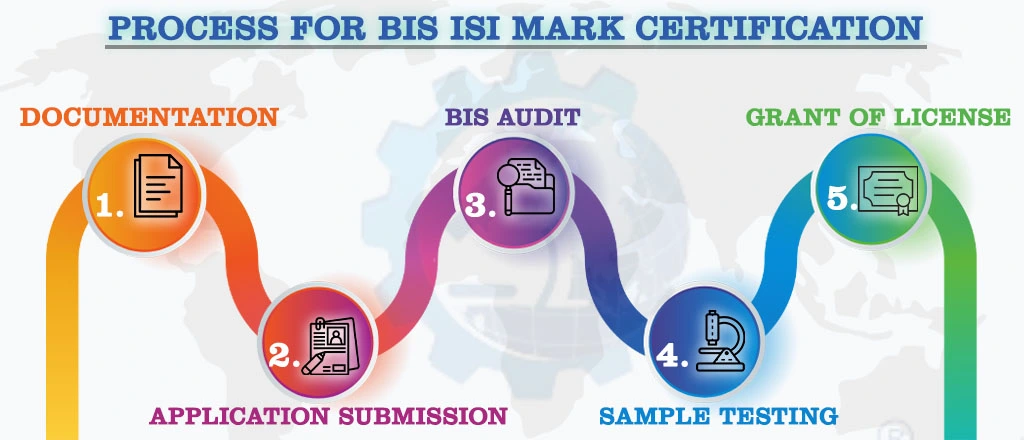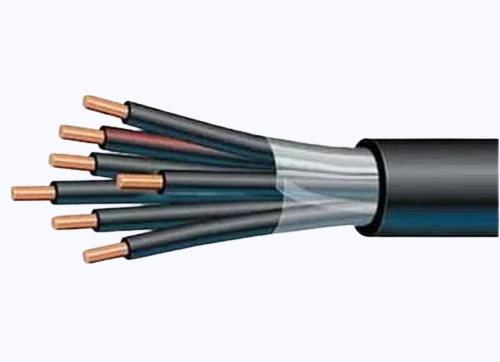BIS CERTIFICATION FOR ELASTOMER INSULATED CABLES
IS 9968 (PART 1)
In this competitive scenario, it isn't easy to survive in the market without a standard quality and certified product. BIS license may also be required to sell products in the Indian market.
To get BIS certification and produce a standard quality product, the manufacturer must ensure that their product must follow the specified Indian standard.
Let’s take a closer look at IS 9968 (Pt 1): 1988 for Elastomer insulated cables for working voltages up to and including 1100 V.
IS 9968 (PART 1): 1988 covers Elastomer insulated cables for working voltages up to and including 1100 V. The Bureau of Indian Standards adopted this Indian Standard (Part 1) (First Revision) on August 25, 1988, after the draft was finalized by the Power Cables sectional Committee, approved by Electrotechnical Division Council. This standard defines the requirements for elastomeric insulated cable for fixed wiring, flexible cables, and flexible cords for electric power and lighting with voltages up to and including 1100 volts.
This standard applies to the following types of cables and cords.
- Cables for fixed wiring
- Braided and compounded/varnished
- Elastomer sheathed
- Elastomer sheathed (normal duty) with earth continuity conductor
- Flexible cables
- Braided and varnished
- Elastomer sheathed (heavy-duty)
- Flexible cords
- Braided
- Elastomer sheathed (normal duty)
- Unkinkable flexible cords- braided and compounded (workshop type)
- Unkinkable flexible cords – braided and compounded
This standard covers cables that can be used on single-phase or three-phase (earthed or unearthed) systems with rated voltages up to and including 1100 volts.
The conductor shall be made of annealed copper wires or aluminium wires that meet the requirements of this standard. Over the conductor, a separator tape made of a suitable material can be applied. The insulation must be made of an elastomer compound. In addition, the product must also meet the requirements outlined in the standard.
Required tests
The following possible test shall be carried out in a day.
- Tensile test (for Aluminium)
- Wrapping test (for Aluminium)
- Conductor Resistance Test
- Test for the thickness of insulation and sheath and overall diameter
- Physical test for insulation and sheath (Tensile and elongation at break)
- Insulation resistance
- Flammability Test
The Firm shall declare the Cable Varieties and Sizes that they intend to cover in the License. The Manufacturer shall be identified throughout the cable length by a tape bearing the Manufacturer's name or trade-mark or by having the Manufacturer's name printed, indented, or embossed on the outer sheath. The cable must be wound on reels, drums, or supplied in coils. The information specified in the standard shall be marked on the reel or drum or contained in a label attached to it. The Standard mark (ISI Mark) may also be applied to the cable. The Manufacturer must obtain a BIS license from the Bureau of Indian Standards to use a standard mark (ISI Mark). The BIS grants a license based on a successful assessment of manufacturing infrastructure, quality control and testing capabilities, and production process.

NOTE:
For Detailed Information about the Procedure for BIS ISI Certification
Visit :
• ISI Mark Certification for Domestic Manufacturers• ISI Mark Certification for Foreign Manufacturers
Conclusion:
If a product falls under the scope of the BIS Conformity Assessment Scheme, All the manufacturers, importers, and foreign entities must obtain BIS ISI Certification. The Bureau may cancel the License if the product fails to meet certification requirements.
Aleph INDIA has been serving the industry as a single-window operator for all product regulatory compliance. We can assist importers or manufacturers in meeting all criteria for importing or selling a product in the Indian market.
International Audits & Participation
Testimonials
BIS REGISTRATION FOR ELECTRONIC & IT PRODUCT
In the era of globalization, world trade is growing rapidly and henceforth, Manufacturing and Import/Export businesses are also growing drastically...View More
BIS CERTIFICATE FOR FOREIGN MANUFACTURER
The Economy of India-the fastest developing economy on the globe with the capabilities that help it matches up with the biggest international...View More
PRODUCT CERTIFICATION SCHEME (ISI MARK) FOR DOMESTIC MANUFACTURERS
Anything a person buys from food to cars, clothes to electronics, branded to unnamed products there is always a question that wanders in one’s...View More
WIRELESS PLANNING AND COORDINATION (WPC)
WPC: Wireless means communication done from one point to another point without the wires and cables. Electromagnetic waves carry the ...View More
BUREAU OF ENERGY EFFICIENCY (BEE) CERTIFICATE
BEE CERTIFICATE: Energy is the future, and its conservation is the way of the bright future. Everyone claims the environment is important...View More
E-WASTE MANAGEMENT
E-waste is one of the world's fastest-growing trash streams. We currently manufacture almost 50 million tones of it each year...View More
Request a call back.
Would you like to speak to one of our Senior Technical advisers over the phone? Just submit your details and we’ll be in touch shortly. You can also email us if you would prefer.
BIS REGISTRATION FOR ELECTRONIC & IT PRODUCT
In the era of globalization, world trade is growing rapidly and henceforth, Manufacturing and Import/Export businesses are also growing drastically...View More
BIS CERTIFICATE FOR FOREIGN MANUFACTURER
The Economy of India-the fastest developing economy on the globe with the capabilities that help it matches up with the biggest international...View More
PRODUCT CERTIFICATION SCHEME (ISI MARK) FOR DOMESTIC MANUFACTURERS
Anything a person buys from food to cars, clothes to electronics, branded to unnamed products there is always a question that wanders in one’s...View More
WIRELESS PLANNING AND COORDINATION (WPC)
WPC: Wireless means communication done from one point to another point without the wires and cables. Electromagnetic waves carry the ...View More
BUREAU OF ENERGY EFFICIENCY (BEE) CERTIFICATE
BEE CERTIFICATE: Energy is the future, and its conservation is the way of the bright future. Everyone claims the environment is important...View More
E-WASTE MANAGEMENT
E-waste is one of the world's fastest-growing trash streams. We currently manufacture almost 50 million tones of it each year...View More
View All Services
Request a call back.
Would you like to speak to one of our Senior Technical advisers over the phone? Just submit your details and we’ll be in touch shortly. You can also email us if you would prefer.






























